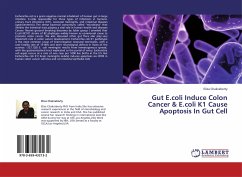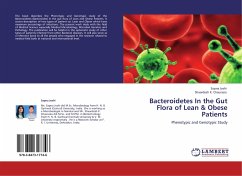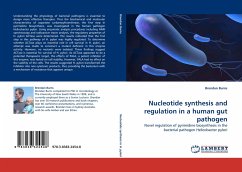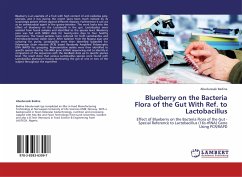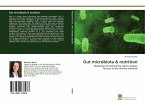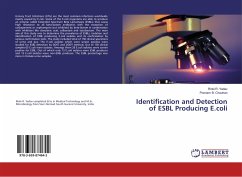Escherichia coli is a gram negative normal inhabitant of human gut in large intestine. E.coliis responsible for three types of infections in humans: urinary tract infections (UTI), neonatal meningitis, and intestinal diseases (gastroenteritis). The dense bacterial consortium, called microbiota that inhibits the intestinal tract,playing a vital role in human health and diseases Cancer. Recent ground breaking discovery by Jobin group ( unveiled that E.coli NC101 strains of B2 phylotype widely known as commonsal cause to promote colon cancer. We also discussed other gut flora also play very important role in colon cancer development. Escherichia coli K1 pathotype is the most common cause of Gram-negative neonatal meningitis, with a case fatality rate of 15-40% and sever neurological defects in many of the survivor. (127,128) E. coli meningitis results from hematogenous spread, with the gastrointestinal tract implicated as the portal of entry. Escherichia coli sepsis occurs at a rateof one case per 1000 live births in the US. But Escherichia coli K1( brain meningitis isolate) induces apoptosis via CD95 in human colon cancer cell lines and rat intestinal epithelial cells
Bitte wählen Sie Ihr Anliegen aus.
Rechnungen
Retourenschein anfordern
Bestellstatus
Storno

